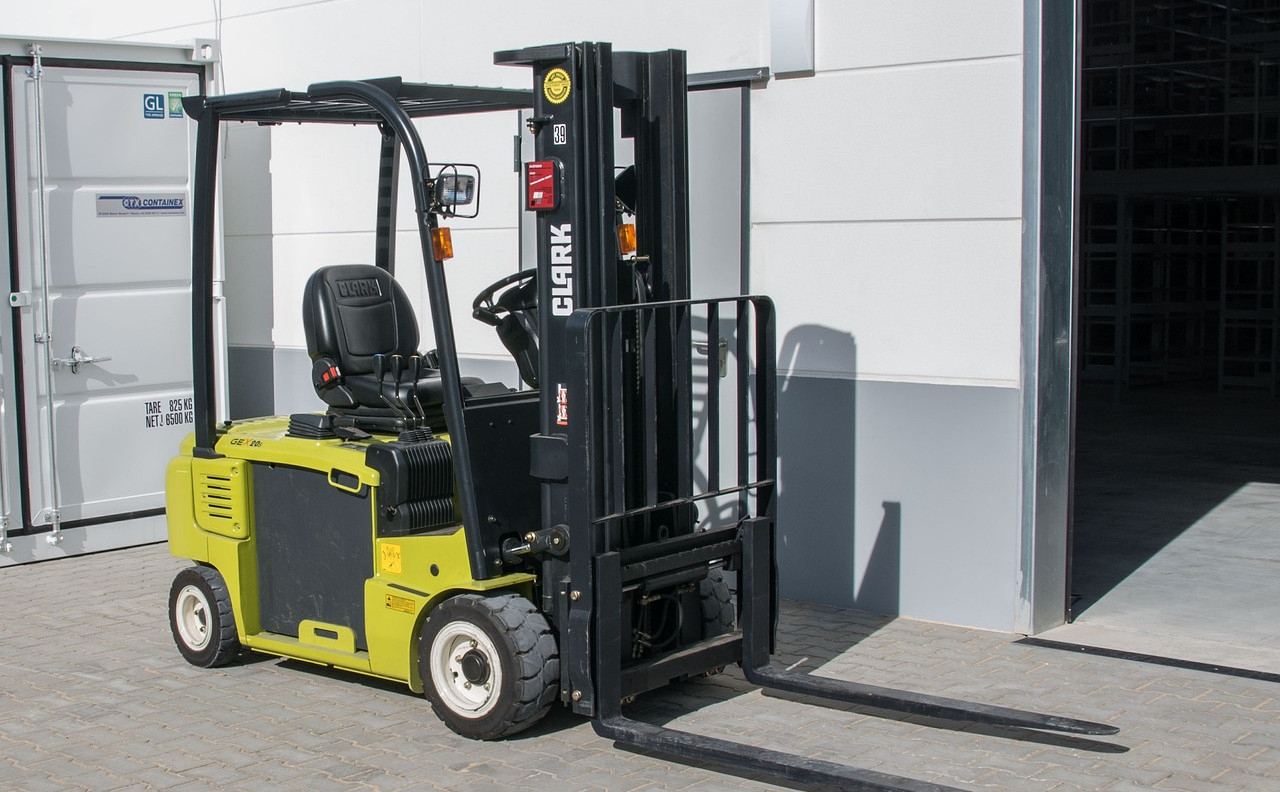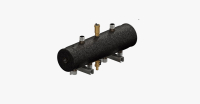Understanding the role of a UDT forklift operator
A UDT Forklift Operator is responsible for maneuvering forklifts to transport, load, and unload materials within warehouses, factories, construction sites, and other industrial settings. Their duties include:
- Material Handling - Moving goods from storage areas to production lines or loading docks, ensuring that items are placed securely and efficiently.
- Inventory Management - Assisting in tracking inventory levels by organizing and maintaining stock, which aids in inventory accuracy and reduces losses.
- Safety Compliance - Adhering to safety protocols to prevent accidents, including proper stacking techniques and awareness of surroundings.
- Equipment Maintenance - Performing routine checks on forklifts to ensure they are in good working condition and reporting any malfunctions to maintenance teams.
The role requires not only physical dexterity but also a keen understanding of safety standards and operational procedures.
Training requirements for a UDT forklift operator
Becoming a certified UDT Forklift Operator involves comprehensive training that equips individuals with the necessary skills and knowledge. The training typically covers:
- Theoretical Instruction - Understanding the principles of forklift operation, including load capacity, balance, and maneuvering techniques. This also includes learning about the different types of forklifts and their specific uses.
- Practical Training - Hands-on experience in operating forklifts under the supervision of certified instructors. This includes practicing maneuvers in various environments to build confidence and competence.
- Safety Protocols - Detailed instruction on workplace safety standards, emergency procedures, and the proper use of personal protective equipment (PPE). Emphasis is placed on hazard recognition and risk assessment.
- Regulatory Compliance - Familiarization with UDT regulations and Polish labor laws related to forklift operation. Understanding the legal responsibilities and consequences of non-compliance is crucial.
Upon completing the training, candidates must pass both theoretical and practical examinations to obtain their certification as a UDT Forklift Operator.
Certification process and requirements
The certification process for a UDT Forklift Operator is rigorous, ensuring that only qualified individuals are entrusted with operating heavy machinery. The key steps include:
- Enrollment in an Accredited Training Program - Prospective operators must enroll in a program recognized by the UDT, which meets all educational and practical training standards.
- Completion of Training Modules - Successfully completing all required training modules, including safety, operational procedures, and equipment handling.
- Examinations - Passing both written and practical exams administered by certified instructors. The written exam tests theoretical knowledge, while the practical exam assesses hands-on operating skills.
- Health and Fitness Assessment - Undergoing a medical examination to ensure the operator is physically and mentally fit to handle the demands of forklift operation.
- Issuance of Certification - Upon successful completion of all requirements, candidates receive a certification that must be renewed periodically to remain valid.
Maintaining certification involves continuous education and periodic re-evaluation to keep up with evolving safety standards and technological advancements in forklift equipment.
The importance of safety in forklift operations
Safety is paramount in forklift operations, as improper handling can lead to serious accidents, injuries, or fatalities. As a UDT Forklift Operator, adhering to safety protocols is essential. Key safety practices include:
- Pre-Operational Inspections - Conducting thorough inspections of the forklift before each use to identify and address any potential issues.
- Load Management - Ensuring that loads are within the forklift’s capacity, properly balanced, and securely fastened to prevent tipping or spillage.
- Safe Maneuvering - Operating forklifts at safe speeds, using proper signaling, and maintaining clear visibility to navigate crowded or obstructed areas.
- Awareness of Surroundings - Being vigilant about the presence of pedestrians, other machinery, and potential hazards in the work environment.
- Emergency Procedures - Knowing how to respond in case of equipment failure, accidents, or other emergencies to minimize risks and ensure prompt resolution.
Implementing these safety measures not only protects the operator but also enhances overall workplace safety and productivity.
Technological advancements and their impact
The forklift industry is continually evolving, with technological advancements significantly impacting the role of a UDT Forklift Operator. Innovations such as:
- Automation and Robotics - The introduction of automated guided vehicles (AGVs) and robotic forklifts reduces the need for manual operation, increasing efficiency and precision in material handling.
- Telematics and IoT Integration - Advanced monitoring systems provide real-time data on forklift performance, usage patterns, and maintenance needs, enabling proactive management and optimization.
- Electric Forklifts - The shift from diesel and propane-powered forklifts to electric models enhances environmental sustainability, reduces noise pollution, and lowers operational costs.
- Enhanced Safety Features - Modern forklifts come equipped with features like collision avoidance systems, improved lighting, and ergonomic designs that enhance operator safety and comfort.
These advancements require UDT Forklift Operators to continuously update their skills and knowledge to effectively utilize new technologies and maintain compliance with evolving standards.
Career prospects and opportunities
Becoming a certified UDT Forklift Operator opens up various career opportunities across multiple industries. Some potential career paths include:
- Warehouse Supervisor - Overseeing warehouse operations, managing teams of forklift operators, and ensuring efficient material handling processes.
- Logistics Coordinator - Planning and coordinating the movement of goods, optimizing supply chain operations, and improving distribution efficiency.
- Equipment Maintenance Technician - Specializing in the maintenance and repair of forklifts and other material handling equipment to ensure optimal performance and longevity.
- Safety Officer - Focusing on workplace safety, conducting safety audits, and developing training programs to minimize risks and promote a safe working environment.
- Operations Manager - Managing overall operations within a facility, including inventory management, workflow optimization, and strategic planning.
With experience and additional qualifications, UDT Forklift Operators can advance to higher managerial or specialized technical roles, enhancing their career prospects and earning potential.
Challenges faced by UDT forklift operators
While the role of a UDT Forklift Operator is rewarding, it comes with its own set of challenges:
- Physical Demands - Operating a forklift requires physical stamina, including standing for long periods, lifting heavy loads, and performing repetitive motions.
- Exposure to Hazards- Operators may be exposed to various workplace hazards, such as moving machinery, slippery surfaces, and extreme temperatures, necessitating constant vigilance and adherence to safety protocols.
- High Responsibility - The operator is responsible for the safe handling of expensive equipment and materials, as well as the safety of themselves and their coworkers.
- Continuous Learning - Keeping up with technological advancements, regulatory changes, and new safety procedures requires ongoing education and adaptability.
- Work Environment - Forklift operators often work in noisy, crowded, and fast-paced environments, which can be stressful and physically taxing.
Addressing these challenges involves comprehensive training, supportive workplace policies, and a strong emphasis on safety and well-being.
Best practices for UDT forklift operators
To excel as a UDT Forklift Operator, adopting best practices is essential. These include:
- Continuous Education - Staying informed about the latest industry trends, safety regulations, and technological advancements through ongoing training and professional development.
- Effective Communication - Maintaining clear and open communication with team members, supervisors, and other stakeholders to ensure smooth operations and quick resolution of issues.
- Attention to Detail - Being meticulous in inspecting equipment, handling loads, and following operational procedures to prevent accidents and ensure efficiency.
- Time Management - Prioritizing tasks effectively to meet deadlines and maintain productivity without compromising safety.
- Proactive Maintenance - Regularly maintaining and servicing forklifts to prevent breakdowns and extend the lifespan of the equipment.
Implementing these best practices enhances operational efficiency, promotes safety, and contributes to career growth and job satisfaction.
The future of UDT forklift operators
The future for UDT Forklift Operators looks promising, driven by advancements in technology and the growing demand for efficient material handling solutions. Key trends shaping the future include:
- Increased Automation - As automation becomes more prevalent, operators will need to adapt to working alongside automated systems and may take on more supervisory or maintenance roles.
- Sustainability Focus -The push towards eco-friendly practices will drive the adoption of electric and hybrid forklifts, requiring operators to acquire new skills related to these technologies.
- Enhanced Training Programs - Continuous improvement in training methodologies, including virtual reality (VR) and augmented reality (AR) simulations, will provide more effective and immersive learning experiences.
- Global Standards - Harmonization of international safety and operational standards will facilitate mobility and employment opportunities for certified UDT Forklift Operators across different regions.
Embracing these trends will ensure that forklift operators remain relevant and valuable in the evolving industrial landscape.
Becoming a UDT Forklift Operator involves rigorous training, certification, and a commitment to safety and continuous improvement. This role is pivotal in ensuring the smooth and efficient movement of materials across various industries. With the ongoing advancements in technology and increasing emphasis on workplace safety, the demand for skilled and certified forklift operators is expected to grow. By adhering to best practices and staying abreast of industry developments, UDT Forklift Operators can achieve long-term career success and contribute significantly to their organizations' operational excellence.












